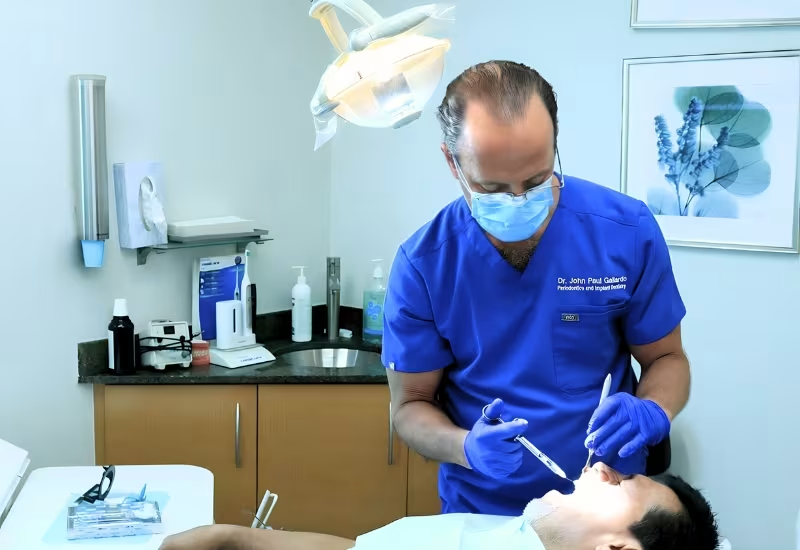
Yes, wisdom tooth removal can cause nerve damage, but it’s extremely rare. In most cases, the procedure is safe and complications are minimal, especially when performed by an experienced oral surgeon.
Getting your wisdom teeth removed might not be something you think about every day, but it’s one of the most common dental procedures out there. If you’re like most people, you’ve probably wondered: “Do I really need this?” or worried about things like pain or potential complications. Let’s break down the facts so you can feel confident about your decision.
What You Need to Know About Wisdom Tooth Removal and Nerve Damage
- Wisdom tooth removal carries a small risk of nerve damage, especially in adults over 25.
- The trigeminal, inferior alveolar, and lingual nerves are the most commonly affected during surgery.
- Nerve damage symptoms can include tingling, numbness, or changes in sensation in your lips, tongue, or chin.
- Most nerve injuries from wisdom tooth removal are temporary and heal within weeks or months.
- Early consultation with a skilled dentist can minimize risks and ensure the best possible care for wisdom tooth extraction.
Why Do Dentists Recommend Wisdom Tooth Removal?
One of the reasons to get a wisdom tooth removal Miami is having impacted teeth, which do not emerge above the gum and cause numerous problems. Another reason is experiencing decay since they are difficult to clean and impractical to fill. Still, other patients have their wisdom teeth removed proactively to help prevent problems later in life.
Trust Dr. Gallardo for a safer wisdom tooth extraction
Schedule a consultation with Gallardo Periodontics and Implant Dentistry today and protect your oral health.
Side Effects of Wisdom Tooth Removal
After the wisdom tooth extraction, patients may experience minor bleeding and slight pain. Pain management is important to ensure a speedy recovery. Patients should take any prescribed medications as directed and use an ice pack to reduce swelling.
Nerve damage from wisdom tooth removal is rare, especially compared to dry socket, which affects about 10% of patients and is easily treated. While nerve damage can happen due to bruising or cutting, choosing an experienced oral surgeon greatly reduces this risk.

Age Matters in Nerve Damage
The risk for paresthesia, or nerve damage, is low with wisdom teeth removal Miami. The incidence rate of this complication is estimated to be around 0.2%, and the success rate of surgical removal is generally high.
Younger patients usually experience fewer postoperative complications with wisdom teeth extraction, which is why it’s so commonly done on teenagers and young adults.
By age 25, the teeth have fully formed, and the roots are longer. The difficulty of tooth extraction is increased, raising the possibility of complications such as nerve injury for the patient.
Symptoms of Nerve Damage after Wisdom Teeth Removal
Patients who experience nerve damage after wisdom tooth extraction may feel severe pain in the area. Excessive bleeding and soft tissue swelling are also recurrent symptoms. To reduce swelling and discomfort, apply ice packs to the affected area for 15 minutes at a time throughout the day. If the pain persists or worsens, contact your oral surgeon immediately.
In extreme cases, the extraction of wisdom teeth can lead to tingling or numbness in the area due to sensory nerve damage. This is caused by the disruption of the nerve pathways that control sensation and movement in the jaw muscles. Loss of sensation or movement in the jaw muscles may also occur.

Fear-Free Wisdom Tooth Removal with Dr. Paul Gallardo
WITH ADVANCED TECHNIQUES, WE MINIMIZE THE RISK OF NERVE DAMAGE AND ENSURE A SAFE, COMFORTABLE EXPERIENCE.
Dental Nerves Possibly Affected after Wisdom Teeth Removal
Dental nerves can potentially become injured or damaged during the procedure, and these nerves control feeling in the tongue, lower lip, and chin.
Trigeminal Nerve
The trigeminal nerve is the main nerve responsible for sensation in the face and can be affected during wisdom tooth removal. Damage to this nerve can cause a decrease in sensation in the lower lip, chin, and tongue.
Inferior Alveolar Nerve
The inferior alveolar and mental nerves can be affected during wisdom tooth removal, especially if the teeth are impacted. These nerves control sensation in the lower jaw and chin, respectively. To reduce the risk of nerve damage, an oral surgeon may administer a local anesthetic or inferior alveolar nerve block to numb the area before beginning the procedure. This helps to minimize any potential discomfort or pain that could occur during the extraction of impacted wisdom teeth.
Lingual Nerve
The lingual nerve is a branch of the mandibular nerve that runs through the lower jaw and can be affected during wisdom tooth removal. Lingual nerve damage can cause a decreased sensation in the tongue and numbness or tingling.
Solutions for Treating Nerve Damage after Wisdom Teeth Removal
If nerve damage after a tooth extraction is suspected, there are treatment options available.

Minor nerve damage
In most cases, minor nerve damage caused by wisdom teeth extraction is a normal reaction to dental surgery and will resolve itself within a few days. Fortunately, many patients experience spontaneous recovery of sensation in the affected area within a few days after surgery.
Major nerve damage
In some cases, major nerve damage may require surgical repair to restore sensation and function to the affected area.
A nerve graft may be necessary to repair the damaged nerve. This involves taking a healthy nerve from another part of the body and using it to bridge the gap between the two ends of the damaged nerve.
Also, physical therapy may be recommended to help restore movement and sensation in the affected area. It can help strengthen weakened muscles and improve the range of motion
Can Nerve Damage Be Permanent?
Fortunately, there’s a possibility that the nerve injury caused by wisdom teeth removal may not be permanent. A damaged nerve may heal on its own over time if you are patient.
In some cases, the damaged nerve is too severe for recovery, and the individual will never regain sensation. Generally, regained sensation in nerves starts to occur within a month of the dental procedure.
Permanent paresthesia can occur if the nerve is severely damaged. In these cases, surgical intervention may be necessary to restore sensation and function to the affected area. However, even with surgical treatment permanent nerve damage may still occur. Patients should discuss all potential risks with their dentist before undergoing any dental procedure.
Should You Undergo Wisdom Tooth Extraction?
Ultimately, it’s your and your dentist’s decision on whether the potential risks of wisdom tooth extraction outweigh those of leaving the teeth in.
Generally, impacted wisdom teeth must be extracted since they often lead to pain, swelling, and other issues. When opting for wisdom tooth extraction for preventative care, you must consider the advantages and disadvantages of undergoing surgery now versus later.
Got questions about wisdom tooth removal? Our experts have answers. If you’re looking for a reputable dentist offering top-quality care and the best wisdom teeth removal Miami price, come to our offices and meet Dr. Gallardo, who ensures every patient gets an unparalleled quality experience. We also offer sedation dentistry, which is a perfect solution if you’re nervous about wisdom teeth removal. To learn more, schedule an appointment with us!
FAQs About Wisdom Tooth Removal and Nerve Damage
In most cases, nerve damage from wisdom teeth removal is temporary and can heal on its own. For rare instances of permanent damage, treatments like nerve repair surgery may help. If you’re concerned, contact Dr. Gallardo at Gallardo Periodontics and Implant Dentistry for expert guidance.
Temporary nerve damage typically heals within a few weeks to a few months, depending on the severity. For personalized care and faster recovery, contact Gallardo Periodontics and Implant Dentistry through our website or call our office directly
Signs include tingling, numbness, or a “pins and needles” sensation in your jaw, lips, or tongue. If you’re experiencing these symptoms, it’s important to get an evaluation right away. Contact Dr. Gallardo at Gallardo Periodontics and Implant Dentistry to assess your situation and provide the best solution.